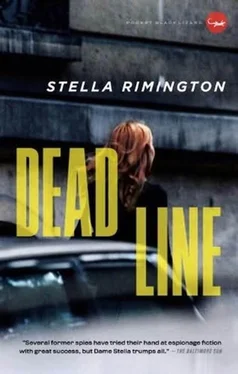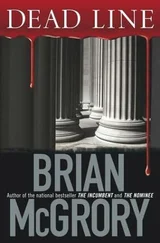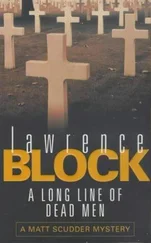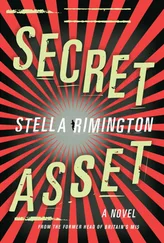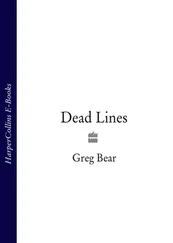Was that a threat? Ahmad wondered. Not quite, he decided, and he wouldn’t pass it on to his superiors in Damascus – they might try to insist again on meeting the source, even try and take him over, and then Ahmad would return home without any of the credit he knew he had earned. But he would have to tell them about the leak.
After waiting ten minutes to make sure he would not trip over Aleppo on his way home, Ahmad left the Portakabin and walked through the shop, along the dingy side street and back towards Park Royal station.
He was alarmed by what Aleppo had said. It was desperately worrying if his own service had been penetrated by the West – worrying but not inconceivable. The British were good and Mossad also had infiltrated all its enemies at one time or another. At the station, he bought another copy of the Standard , his attention caught by a late, lurid headline. As he waited for the next train, he read the story, half-fascinated, half-repelled by its details. Auto-asphyxiation – why would anyone want to play at that? And in a church, no less. These English, he thought as he saw the amber beam of the approaching train fill the distant tunnel, they were beyond bizarre.
At least she knew where she was, not that it helped. Seventy feet below ground, thirty seconds out of Chalk Farm station, stuck in a tunnel with no sense they would be moving any time soon.
Across from her a morose-looking woman in a brown cardigan stared at the floor apathetically, while next to her a builder in dust-covered boots noisily turned the pages of the Sun . The headline read ‘Man in Box Mystery’. How ghoulish, thought Liz, then she remembered how an ex-boyfriend, a journalist on the Guardian , had claimed that such headlines were reassuring. ‘If I land at Heathrow and the headline on the Evening Standard reads, “Nurse Found Strangled,” then I know all’s right with the world. No terrorist bomb has gone off, no threat of impending nuclear war. Just a humdrum sex murder to titillate commuters.’
Looking at her watch, Liz saw they had been motionless for over ten minutes. Thank God she wasn’t claustrophobic; Peggy would be climbing the walls by now. Thinking of Peggy, she pondered the girl’s mix of shyness and delight as she’d described Tim. Liz could imagine their first dates, all in suitably intellectual places (the National Gallery, the Soane Museum). They’d have chatted earnestly over flapjacks and mugs of tea, discussing the comparative merits of the Metaphysical Poets, or the late Beethoven string quartets.
It was easy to be patronising, but Liz had to admire Peggy’s initiative – going to talks, meeting new people. Meeting men. There was no point in being stuffy about it, thought Liz, not if it worked for Peggy. And it had. And look at her own mother. Sixty-plus, a widow with a lovely house, an interesting job – even she had found company.
For years after her father had died Liz had felt responsible for her mother. Not enough for her to agree to give up what her mother regarded as her ‘dangerous’ job to go back home to Wiltshire to share the running of the garden centre her mother managed. But enough for her to make the tedious journey every month and keep in touch regularly by phone. Then earlier this year, out of the blue, her mother had acquired a boyfriend, Edward, and now she seemed contented and less dependent on her daughter.
Liz knew she should be pleased for her mother, but when she thought of all those weekends she had forced herself to drive down to Wiltshire when she would much rather have stayed in London, the anxiety when her mother had had a cancer scare just as Liz was in the middle of a complex and worrying case, she felt a flash of resentment. It was irrational, she knew it was, but she felt it just the same.
Liz tried to picture this new boyfriend of her mother’s, whom she’d never met but knew she would not like. He’d wear tweeds and be ex-army, a major perhaps, or even a colonel. He’d go on and on about the Aden campaign or wherever. God, how boring, thought Liz, and possibly venal – she was sure part of her mother’s appeal to Edward must be the creature comforts she could provide for him in her cosy house in Bowerbridge. Still, she thought grudgingly, her mother seemed to be enjoying this late romance of hers.
Whereas I’m just stuck in a rut, Liz brooded, watching as the woman in the cardigan yawned and closed her eyes. The only men she met were at work, and yet at work she found her emotions already engaged. By Charles, a man she only saw in the office and who was unavailable anyway.
It suddenly seemed ridiculous. I can’t go on this way, thought Liz, surprised at how obvious this realisation was. She couldn’t blame anyone but herself – it wasn’t as if Charles had ever encouraged her, or asked her to wait for him. She supposed he’d made his feelings clear, in his discreet and dignified way, but equally, he’d never pretended he could do anything about them.
All right then, thought Liz, cut your losses, and move on. Time’s a-flying, however young I feel. There must be men I can meet. The image of Geoffrey Fane flitted briefly through her head. There was something undeniably attractive about him – he was good-looking in an arrogant way, clever, quick-witted, amusing when he wanted to be. And best of all, Fane was no longer married.
But it wasn’t for nothing he was known in MI5 as the Prince of Darkness, and she knew she could never altogether trust him. No, like Peggy, she needed to meet someone outside the service, and she cheered up briefly at the prospect. There was just the small matter of how to meet this new someone.
A hissing noise of escaping air came from the tunnel, and the train slid forward as if on ice. The builder looked up from his sports page and briefly met Liz’s eyes. Across the carriage the older woman was sound asleep, her hands clasped in her lap.
It was nearly seven in the evening when Hannah Gold got off the Underground at Bond Street station and started to walk slowly towards Piccadilly. She could have changed lines and got a lot nearer to her destination, but she loved walking in London on these late summer evenings. The weather had been a surprise – she had come to England armed with sweaters and a raincoat and umbrella, but so far she had needed none of them. She might still have been in Tel Aviv, to judge by the climate.
Now, as she walked down Bond Street, she stopped from time to time to admire the clothes and shoes in the smart shops and, as she got nearer to Piccadilly, the watches and jewellery and the paintings in the windows of the galleries. She still found it hard to get used to the idea that she had enough money of her own now to buy practically anything she liked, and the independence to spend it as she pleased.
She hadn’t seen Saul for more than a year – not since she’d sold their home in Beverly Hills, banked her final settlement from the divorce and upped sticks and left for her new life in Israel. Looking back on it all, she could see that she’d been in a state of shocked anger when she left America for good. Thirty-three years of marriage had been suddenly ended by one late-night conversation with her husband. She couldn’t believe her ears. It was no surprise that he was having an affair – he’d had affairs before, often – but this time he wanted a divorce. All those shared years, the experiences, the help she’d given him as he built up his business… all gone in the forty-five seconds it had taken him to deliver his prepared speech. It was over, he’d said, and that was final.
After the first shock came the anger and it was anger that had fuelled her through the drawn-out wrangling of the divorce proceedings. She had finally been awarded her twenty million dollars, enough for a complete change of life. She could have gone to live anywhere. She could have come to London, where her son David lived with his wife and small children. But she’d finally chosen Israel, though it was not the obvious choice. She was proud to be Jewish, but she was increasingly upset by the way Israel behaved. The situation in that part of the world seemed to be worsening every year, and she simply couldn’t believe that none of it was Israel’s fault. The settlements seemed to her to be madness and the unwillingness of many Israelis to concede that the Palestinians had a grievance, more madness still.
Читать дальше
